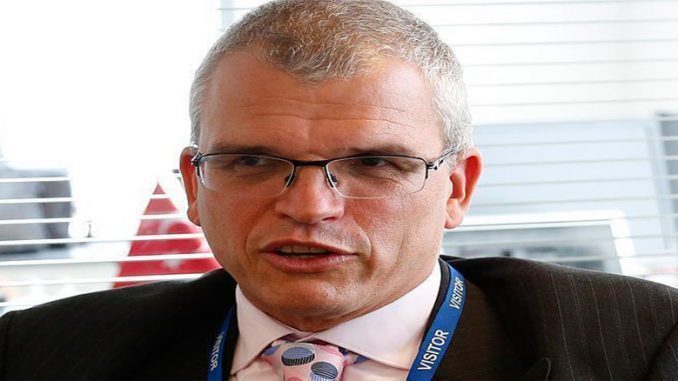
Markets would display short-term positivity to possible Yes vote on constitutional change, say economists
The markets’ reactions to a Yes vote on Turkey’s constitutional referendum will be “positive” and its economy would witness a rapid recovery in the short-run, experts said on Friday.
Speaking about the possible outcomes of the April 16 referendum on the Turkish economy, analysts told Anadolu Agency the government could focus more on the economy after the vote.
“Markets are likely to rally in the short term, as assumptions that political risks moderate and the AK Party [Turkey’s ruling Justice and Development Party] has an interest in normalization and getting back to business and the economy, in the case of a ‘yes’ vote,” London-based economist Timothy Ash said.
Ash noted that a Yes vote still raises concerns about a lack of checks and balances, poor policy choices and subpar growth in the long-run, adding:
“But in the short-run, I think the central bank could also cut rates, which could support foreign portfolio inflows, again helping the Turkish lira.”
Commenting about a possible No vote, Ash stressed the possibilities of market sell offs, lira weakness plus higher interest rates and an increase in anti-EU rhetoric from the administration.
“Because in such case, markets expect that [President Recep Tayyip] Erdogan will push for early parliamentary elections, which means more near-term political risk and uncertainty,” he said.
‘Political uncertainty’ to end
Enver Erkan, an economist from Kapital FX, said that both outcomes’ first reaction to Turkish financial markets would be positive in theory, in terms of ending of political uncertainty.
“Since the government would be able to focus on economic reforms and we can see some normalization, a Yes vote would be positive, according to the market theory,” Erkan said.
“This would also affect foreign capital inflows and direct investments positively in the upcoming months,” he added.
Recalling the currently fragile relations between Turkey and the EU in recent months, Erkan said: “If the EU freezes negotiations with Turkey after a Yes, this will lead to more fragility for the real economy.”
“Relations with the Trump administration in the U.S. is also important, because of the political situation in Turkey’s neighborhood and the extradition of [Fetullah Terrorist Organization] leader Gulen back to Turkey,” he said.
Erkan remarked that a No vote could bring some fluctuations in financial assets in upcoming period.
“Nothing will change in caeteris paribus terms. But, if a No vote leads us to an early election, we could face new political uncertainty,” Erkan said.
“Some capital outflows may be seen, amid the increasing political tension between the government and opposition political parties,” he added.
Turkey’s economy expanded at a rate of 2.9 percent in 2016, the Turkish Statistical Institute reported on Friday.
According to the TurkStat report, Turkey’s gross domestic product was around 2.59 trillion Turkish liras (some $856.8 billion) in 2016, compared to 2.34 trillion Turkish liras (around $861.5 billion) the previous year.



